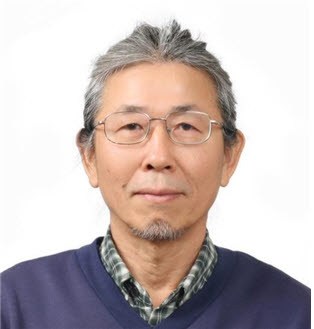people
The Alexander von Humboldt Foundation, established by the German government in 1953, promotes academic cooperation and exchange among scientists and scholars from Germany and abroad. The foundation has bestowed this year's award to Professor Suck-Joo Na of KAIST's Mechanical Engineering Department in recognition of his lifetime achievements.
Professor Na's main interests are in the fields of arc and laser welding, computational fluid dynamics simulation, residual stress and distortion, and design of welded structures. He has received numerous honors and awards including the Research Fellowship Award from the Alexander von Humboldt Foundation (1989), the Excellent Research Paper Award from the Korean Welding and Joining Society (1993), the Charles H. Jennings Memorial Award from the American Welding Society (2003), and the Yoshiaki Arata Award from the International Institute of Welding (2014).
The Humboldt Research Award is granted annually to up to 100 academics whose fundamental discoveries, new theories, or insights have had a significant impact on their own discipline and who are expected to continue producing cutting-edge achievements in the future.
The award winners also receive a research grant of 60,000 Euros and are invited to work up to one year with colleagues at research institutions in Germany. Nominations for the award are made only by established academic institutions in Germany.
Professor Na will collaborate with a research team led by Professor Michael Rethmeier at the Berlin-based Federal Institute for Materials Research and Testing (BAM) to conduct research in laser welding and selective laser melting, as well as the mathematical analysis of these manufacturing processes from July 2017 to the end of February 2018.

-
research KAIST Develops Sodium Battery Capable of Rapid Charging in Just a Few Seconds
Sodium (Na), which is over 500 times more abundant than lithium (Li), has recently garnered significant attention for its potential in sodium-ion battery technologies. However, existing sodium-ion batteries face fundamental limitations, including lower power output, constrained storage properties, and longer charging times, necessitating the development of next-generation energy storage materials. On the 11th of April, KAIST (represented by President Kwang Hyung Lee) announced that a research t
2024-04-18 -
research KAIST introduces microbial food as a strategy food production of the future
The global food crisis is increasing due to rapid population growth and declining food productivity to climate change. Moreover, today's food production and supply system emit a huge amount of carbon dioxide, reaching 30% of the total amount emitted by humanity, aggravating climate change. Sustainable and nutritious microbial food is attracting attention as a key to overcoming this impasse. KAIST (President Kwang Hyung Lee) announced on April 12th that Research Professor Kyeong Rok Choi of th
2024-04-12 -
research KAIST researchers developed a novel ultra-low power memory for neuromorphic computing
A team of Korean researchers is making headlines by developing a new memory device that can be used to replace existing memory or used in implementing neuromorphic computing for next-generation artificial intelligence hardware for its low processing costs and its ultra-low power consumption. KAIST (President Kwang-Hyung Lee) announced on April 4th that Professor Shinhyun Choi's research team in the School of Electrical Engineering has developed a next-generation phase change memory* device fe
2024-04-04 -
research A KAIST-SNUH Team Devises a Way to Make Mathematical Predictions to find Metabolites Related to Somatic Mutations in Cancers
Cancer is characterized by abnormal metabolic processes different from those of normal cells. Therefore, cancer metabolism has been extensively studied to develop effective diagnosis and treatment strategies. Notable achievements of cancer metabolism studies include the discovery of oncometabolites* and the approval of anticancer drugs by the U.S. Food and Drug Administration (FDA) that target enzymes associated with oncometabolites. Approved anticancer drugs such as ‘Tibsovo (active ingre
2024-03-18 -
research KAIST Develops Healthcare Device Tracking Chronic Diabetic Wounds
A KAIST research team has developed an effective wireless system that monitors the wound healing process by tracking the spatiotemporal temperature changes and heat transfer characteristics of damaged areas such as diabetic wounds. On the 5th of March, KAIST (represented by President Kwang Hyung Lee) announced that the research team led by Professor Kyeongha Kwon from KAIST’s School of Electrical Engineering, in association with Chung-Ang University professor Hanjun Ryu, developed digit
2024-03-11